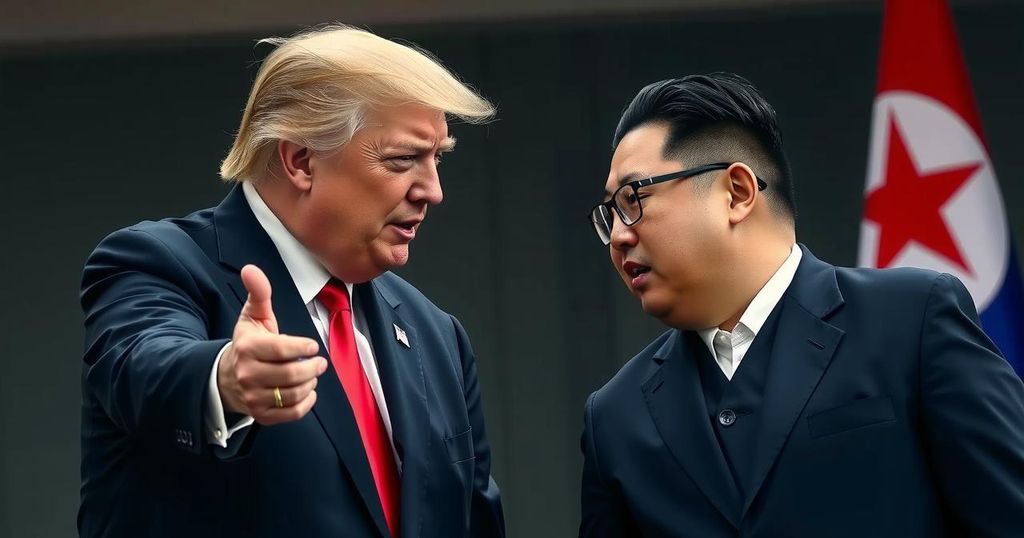Navigating a Complicated Landscape: Trump and Kim’s Evolving Relationship

Donald Trump faces a tougher challenge in re-establishing relations with Kim Jong Un due to Kim’s enhanced power and strategic alliances. While Trump reminisces about their past, Kim’s recent criticisms of U.S. policies reflect a more emboldened stance. Experts suggest that substantive concessions may be necessary for successful diplomacy, especially given the evolving international landscape influenced by the Ukraine conflict.
The political landscape surrounding Donald Trump’s return to the presidency poses significant challenges regarding his relationship with North Korean leader Kim Jong Un. While Trump reminisces about their past interactions, Kim has emerged as a more fortified figure, propelled by North Korea’s enhanced military capabilities and newfound alliances, particularly with Russia. Kim’s recent comments at a defense expo highlight a shift in North Korea’s stance, as he condemns the United States for its “unchanging aggressive and hostile policy.” Trump may pursue new negotiations; however, Kim appears less inclined to engage without substantial concessions.
Historically, Kim carried animosity towards Trump stemming from the failed Hanoi summit in 2019, where Trump walked away from talks, leaving Kim in a vulnerable position domestically. Presently, North Korea is no longer isolated as it was in 2017; it has capitalized on geopolitical shifts to fortify its position. The alliance with Russia has allowed North Korea to import essential provisions, while Russia’s influence has hampered the enforcement of UN sanctions, empowering Kim to take bolder actions against South Korea and the United States.
Trump’s strategy may favor utilizing diplomacy rather than confrontation, suggesting possible concessions such as sanctions relief in exchange for a halt in missile tests. Despite Trump’s self-proclaimed rapport with Kim, experts caution about the potential ineffectiveness of diplomatic strategies without tangible commitments from both sides. Ultimately, increasing tensions due to the Ukraine conflict could significantly impact the prospects for a thaw in US-North Korea relations, as the global political climate continues to evolve.
The dynamics of international relations have fluctuated dramatically since Trump’s previous term, particularly concerning North Korea. Under Trump’s administration, North Korea was subjected to significant sanctions that curtailed its interactions with the international community. However, the ongoing conflict in Ukraine and subsequent shifts in Russian-North Korean relations have altered this landscape. With Russia’s need for support in its military endeavors, North Korea has found new avenues for collaboration that enhance its geopolitical leverage. Consequently, as Trump steps back into the spotlight, he must navigate a more empowered North Korean regime that is less inclined to compromise, presenting new challenges for American diplomacy in the region.
In conclusion, Donald Trump’s attempt to rekindle his relationship with Kim Jong Un comes at a time of heightened tensions and increased complexity in international politics. Kim’s strengthened position, bolstered by strategic alliances and prior grievances stemming from their last encounter, renders future negotiations precarious. For Trump to engage effectively, he may need to reconsider his approach, balancing diplomacy with the realities of North Korea’s current standing in the world order. As the situation regarding Ukraine develops, it remains to be seen whether this will facilitate or hinder rapprochement between the United States and North Korea.
Original Source: www.businessinsider.com








